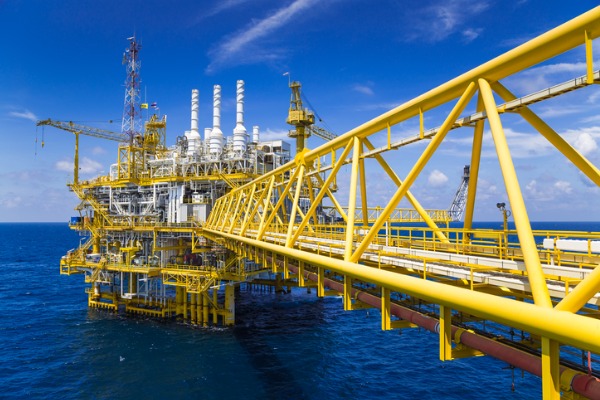Shell's ruthless focus on value triggers big price target upgrade
11th July 2023 13:58
by Graeme Evans from interactive investor
The oil major's asset profitability has ranked bottom of its peer group, but there's a potential fix that could improve its valuation. This is a big deal for shareholders, says a City expert.

A “ruthless” focus on value by the new team running Shell (LSE:SHEL) has been backed to trigger a big turnaround for the oil giant’s underperforming share price.
Deutsche Bank expects recently-appointed CEO Wael Sawan to push through the required financial, cultural and behavioural changes that will improve asset profitability, otherwise known as return on average capital employed (ROACE).
- Learn more: SIPP Portfolio Ideas | How SIPPs Work | Transfer a SIPP
Over the last three years Shell's average ROACE of 12.9% ranks bottom of its peer group and has been seen as one of the factors holding back its valuation.
While admitting it will take time to have an impact on $225 billion of capital employed, the bank’s assumptions see Shell's 2028 ROACE increasing to 15.2%.
That would leave Shell above the European sector average of 13.7% forecast for that year and behind only Equinor ASA (XETRA:DNQ)and UK peer BP (LSE:BP.).
It expects to see a focus on higher value capital expenditure, cost savings of up to $3 billion by 2025 and increased efforts to dispose of lower quartile assets and businesses.
Under Sawan’s leadership and supported by a new finance boss and recently-appointed head of upstream operations, Deutsche Bank believes that Shell now has a clear strategy that “essentially boils down to a pragmatically ruthless focus on value”.
As every 100 basis point improvement in ROACE has the potential to add 8% to 2023 earnings per share (EPS), the bank has raised its EPS forecasts by 5% and 9% for 2024 and 2025 respectively based on unchanged oil and gas price forecasts.
It increased its target share price by 12% to 3,268p for a 37% upside that is the largest in its European coverage. Risks to its valuation include a fall in LNG demand, further carbon Scope 3 taxes, and opposition to investments in oil and gas projects.
The bank said: “Shell's ROACE has long lagged key peers and this has possibly been a headwind for relative share performance at times.
“By the same token it is also a perennial source of potential upside, if a management team can unlock more of the undoubted value-creation potential of Shell's engineers and portfolio of upstream, midstream and downstream assets.”
- ii view: Shell warns on quarterly gas trading decline
- The Income Investor: dividend stocks still beat bonds and two shares I like
- Merryn Somerset Webb: the scariest chart in the world
Shell’s dividend yield of 4.6% is below the sector's 6.3% but including buybacks the total distribution yield of 11.7% is mid-ranking.
However, Deutsche Bank notes that Shell’s sector-leading 2024 free cash flow yield forecast of 15.4% points to the capacity to increase the ordinary dividend payout.
Sawan told investors and analysts in New York recently that he planned to increase shareholder distributions to 30-40% of cash flow from operations through the cycle. A 15% increase in dividend to around $0.33 a share is due to be confirmed alongside second quarter results on 27 July and will be distributed to shareholders on 18 September.
These articles are provided for information purposes only. Occasionally, an opinion about whether to buy or sell a specific investment may be provided by third parties. The content is not intended to be a personal recommendation to buy or sell any financial instrument or product, or to adopt any investment strategy as it is not provided based on an assessment of your investing knowledge and experience, your financial situation or your investment objectives. The value of your investments, and the income derived from them, may go down as well as up. You may not get back all the money that you invest. The investments referred to in this article may not be suitable for all investors, and if in doubt, an investor should seek advice from a qualified investment adviser.
Full performance can be found on the company or index summary page on the interactive investor website. Simply click on the company's or index name highlighted in the article.